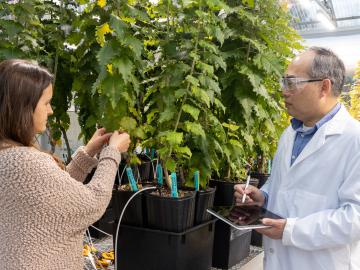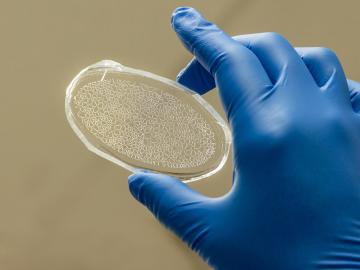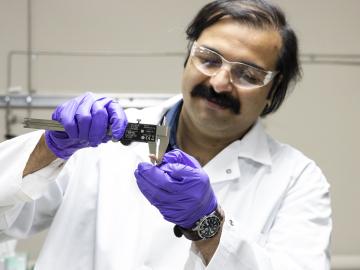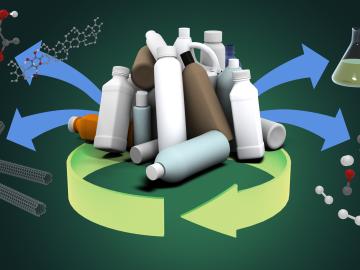Filter News
Area of Research
News Topics
- (-) Materials (2)
- (-) Nanotechnology (2)
- 3-D Printing/Advanced Manufacturing (4)
- Artificial Intelligence (6)
- Big Data (8)
- Bioenergy (36)
- Biology (56)
- Biomedical (11)
- Biotechnology (8)
- Chemical Sciences (3)
- Clean Water (11)
- Climate Change (32)
- Composites (2)
- Computer Science (14)
- Coronavirus (6)
- Decarbonization (17)
- Energy Storage (2)
- Environment (74)
- Exascale Computing (4)
- Frontier (3)
- Grid (2)
- High-Performance Computing (15)
- Hydropower (8)
- Machine Learning (6)
- Materials Science (2)
- Mathematics (3)
- Mercury (7)
- Microscopy (7)
- National Security (2)
- Net Zero (1)
- Neutron Science (1)
- Physics (1)
- Polymers (1)
- Renewable Energy (1)
- Security (1)
- Simulation (10)
- Summit (7)
- Sustainable Energy (26)
- Transportation (1)
Media Contacts

Nature-based solutions are an effective tool to combat climate change triggered by rising carbon emissions, whether it’s by clearing the skies with bio-based aviation fuels or boosting natural carbon sinks.

Scientists at ORNL have created a miniaturized environment to study the ecosystem around poplar tree roots for insights into plant health and soil carbon sequestration.

Chemical and environmental engineer Samarthya Bhagia is focused on achieving carbon neutrality and a circular economy by designing new plant-based materials for a range of applications from energy storage devices and sensors to environmentally friendly bioplastics.

Oak Ridge National Laboratory researchers determined that designing polymers specifically with upcycling in mind could reduce future plastic waste considerably and facilitate a circular economy where the material is used repeatedly.




